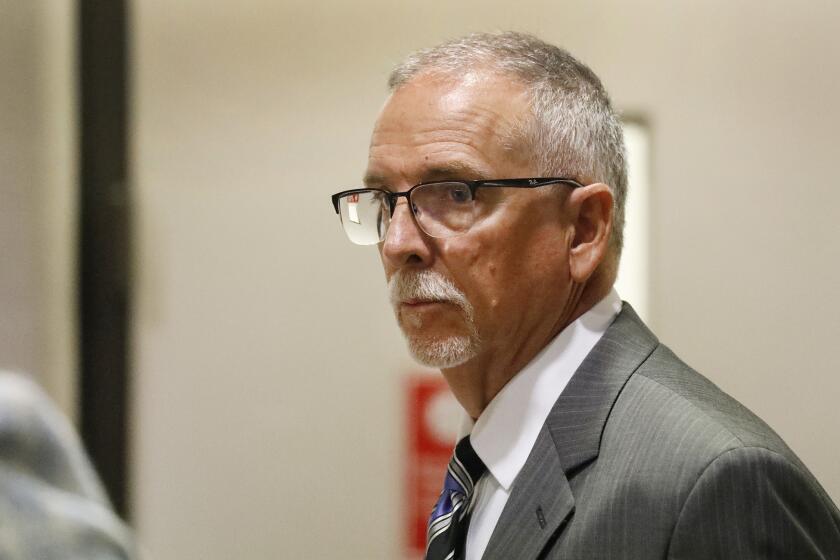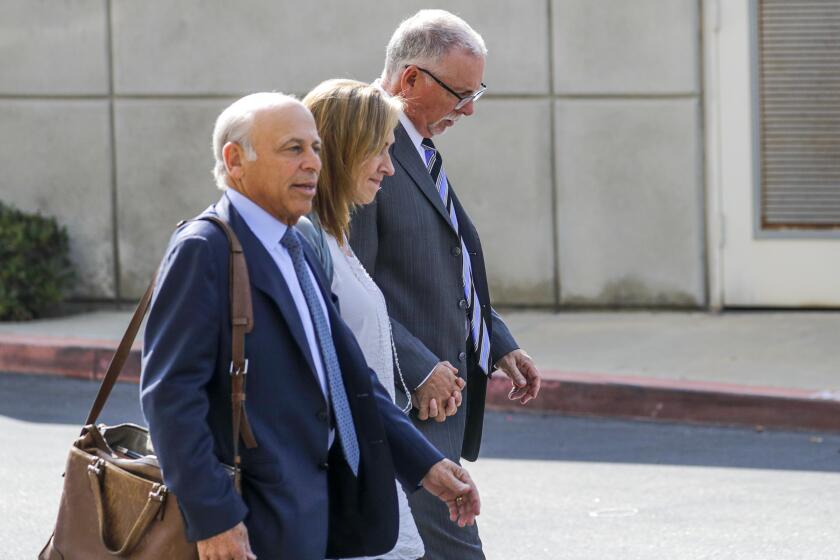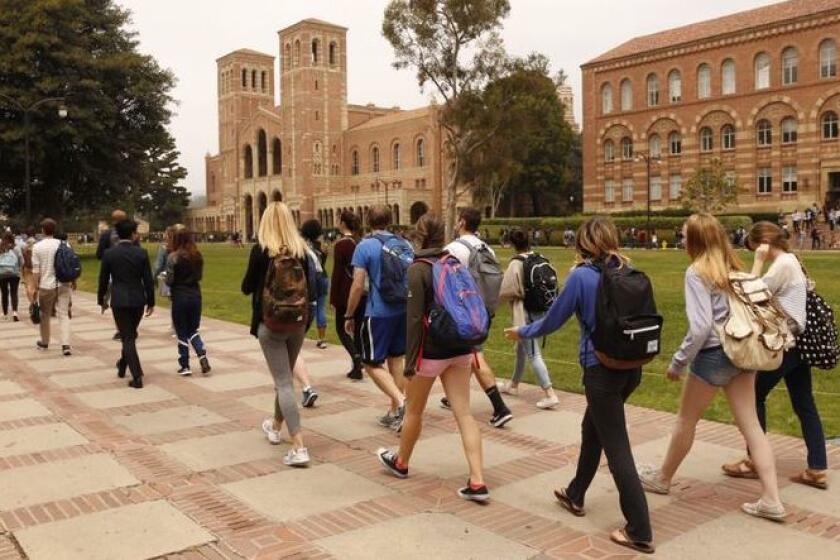UC pays record $700 million to women who accused UCLA gynecologist of sexual abuse
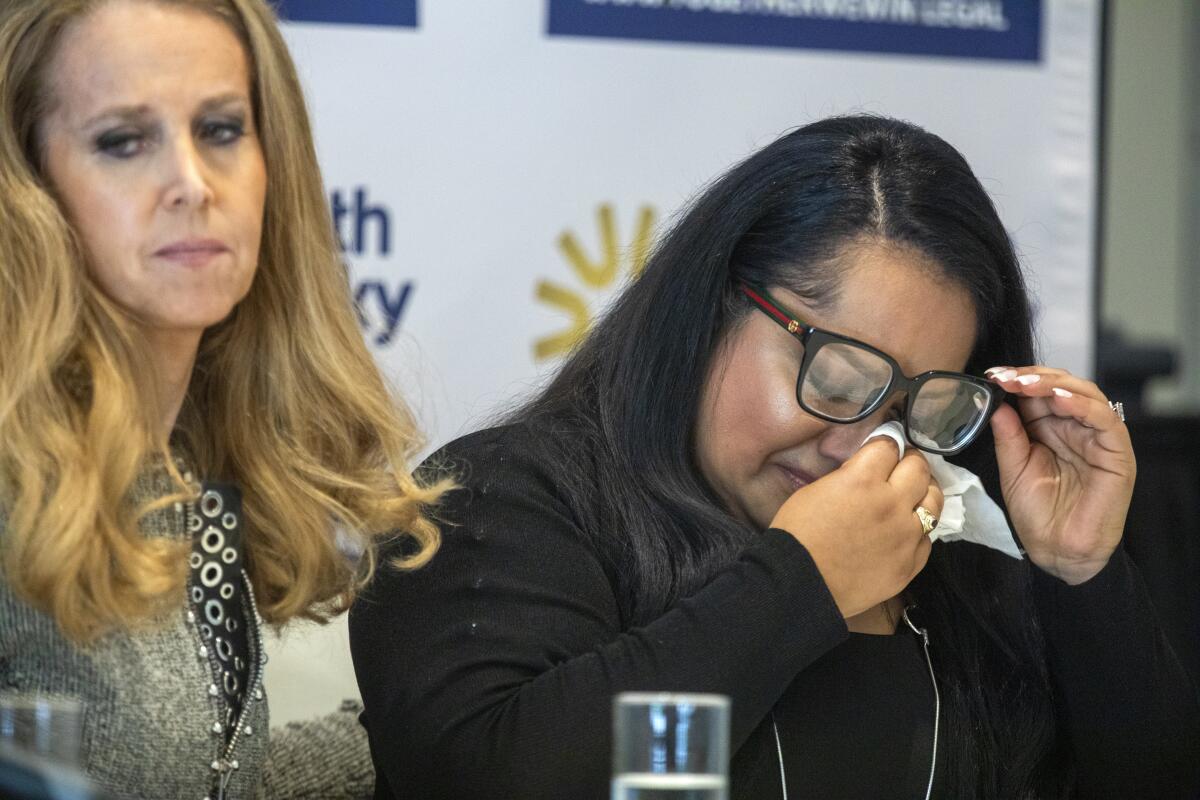
The University of California system agreed Tuesday to settle lawsuits brought by hundreds of alleged victims of a former UCLA gynecologist, bringing total litigation payouts to nearly $700 million, the largest ever related to sexual abuse involving a public university.
The latest $374.4 million in settlements covers 312 former patients who sued alleging they were abused by Dr. James Heaps under the guise of medical examinations between 1983 and 2018.
Given that Heaps specialized in cancer treatment, some plaintiffs were cancer patients and a handful had late-stage cancers with a terminal diagnosis. One of those women died before the settlement was approved by a Los Angeles County Superior Court judge.
The latest settlement comes on top of a $243.6-million settlement of more than 200 women’s lawsuits and a $73-million class-action settlement involving more than 5,000 patients of Heaps dating to 1983. In 2019, the UC system also paid $2.25 million to settle a lawsuit by a patient who alleged she was sexually assaulted in 2018.
In announcing plans to issue medical facility bonds, the UC system declared a portion would be used to fund the expected Heaps settlements because its available insurance coverage has been exhausted.
The behavior of a prominent UCLA Health gynecologist during an exam with a married mother of four amounted to sexual assault and harassment, according to an investigative report by the university made public Thursday.
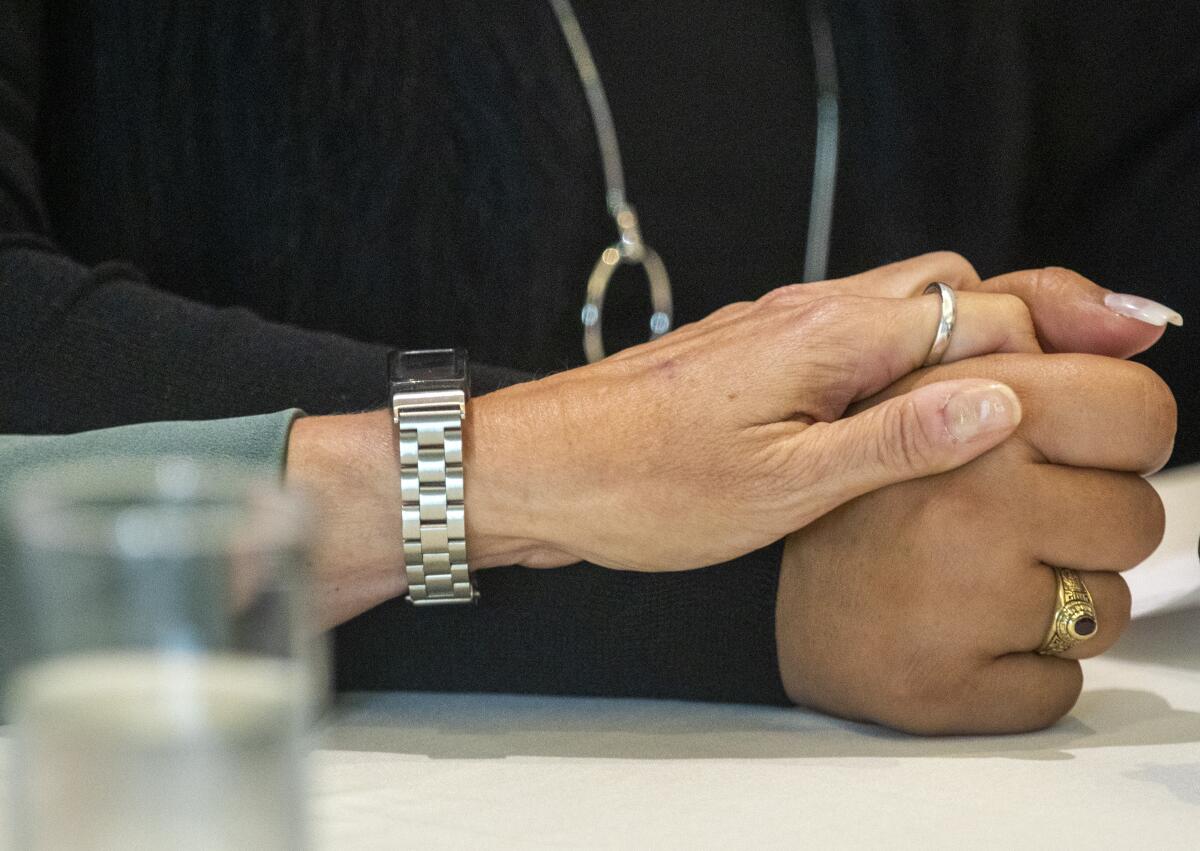
In a statement Tuesday, UCLA said that the conduct alleged to have been committed by Heaps is “reprehensible and contrary to our values.”
“We are grateful to all those who came forward, and hope this settlement is one step toward providing some level of healing for the plaintiffs involved. We are taking all necessary steps to ensure our patients’ well-being in order to maintain the public’s confidence and trust,” the university said.
“The settlement will not impact UCLA’s teaching, research and service, including patient care, student life and campus activities. It will be covered by the UC systemwide insurance and risk financing program. Any additional required resources will be provided by UCLA Health and campus operating revenue.”
At the heart of the litigation are allegations that UCLA ignored multiple detailed complaints of abuse over decades. A UC system report found that UCLA repeatedly failed to adequately investigate the allegations. UCLA allowed Heaps to return to practice in 2018 to find new victims, the suits claim, even though top university officials knew of an ongoing internal investigation into the allegations.
Attorney Jennifer McGrath, who represents the plaintiffs, said UCLA turned a blind eye to decades of reports by patients and employees because he was the top earner for UCLA Health. “It is a culture of silence. she said. “UCLA still hasn’t disciplined or terminated any decision makers who allowed Heaps to keep practicing.”
Darren Kavinoky, another lawyer for the plaintiffs, said that even though UCLA investigators had already gathered extensive evidence against Heaps in 2018, the university “continued to pack his waiting room for months before his retirement and never announced they rooted out an alleged sexual predator” until his arrest in 2019.
Far from punishing Heaps or his supervisors, the university promoted some, Kavinoky and McGrath said.
Heaps is still facing criminal charges involving seven of those patients. He has denied any wrongdoing.
UCLA refused to say whether any other university officials were disciplined. dismissed or forced to retire because of their actions related to Heaps. No one else has been charged.
The cost of the UC settlements exceeds payouts by Michigan State University and the University of Michigan to resolve lawsuits brought by patients who alleged sexual abuse by school doctors. It also dwarfs a settlement reached involving the Penn State sex abuse scandal.
It is still less than the $1.1 billion USC has paid to settle lawsuits by hundreds of women who accused gynecologist George Tyndall of sexual abuse.
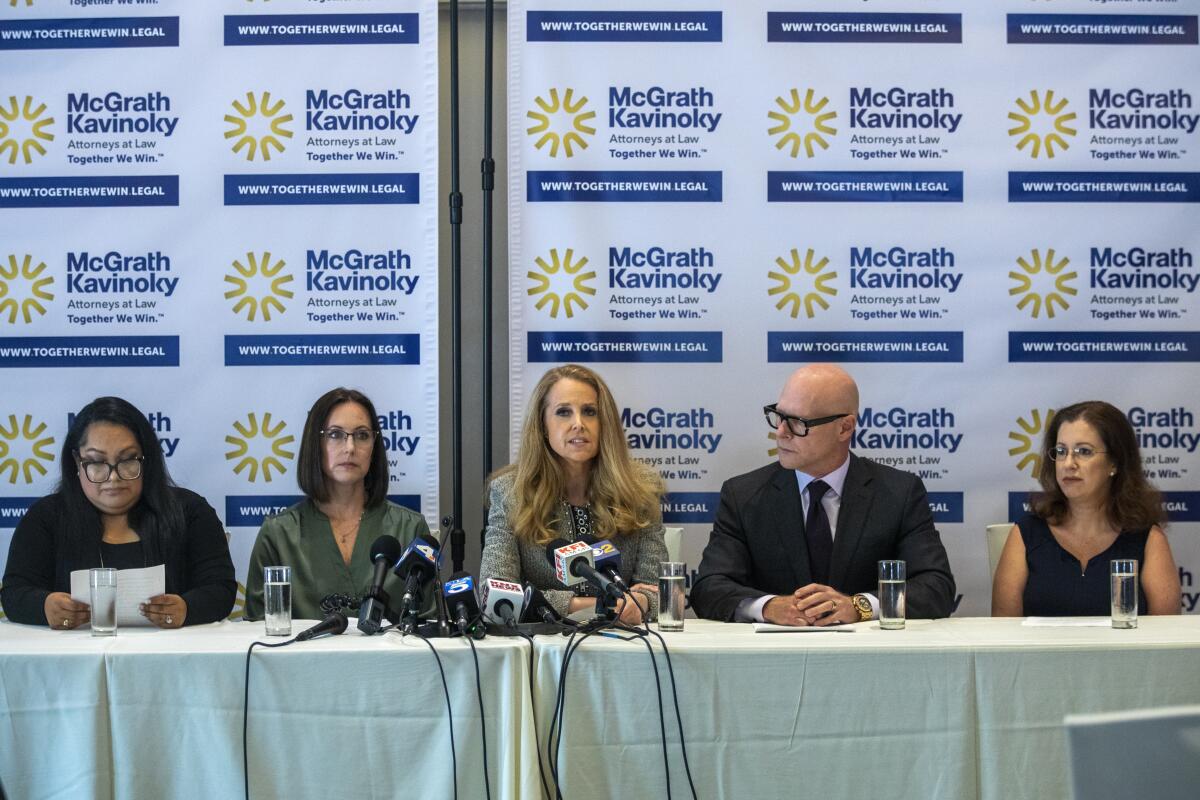
Some of Heaps’ accusers called the settlement a vindication after complaining about the doctor for years and seeing little done.
One of the accusers identified only by her first name, Ellen, said the settlement negotiations, which stretched on for three years, caused further emotional pain and suffering for all of the plaintiffs.
“Maybe we will begin to put this nightmare behind us. But truthfully, many of us will spend the rest of our lives tortured by the memories of our sexual assault at the hands of a doctor who was supported, touted and promoted by UCLA.”
Julie, another patient and UCLA graduate said, ”UCLA helped let this monster continue to see patients like me after they knew Dr. Heaps was a threat and danger to others.”
While the settlement was a step toward addressing the horrible acts, she said, ”the people who covered up this abuse should be held accountable too.”
Gabby, a former UCLA health employee and another accuser, said she tried to report Heaps’ misconduct and was ostracized because of her efforts.
Instead of protecting the patients, UCLA protected “the most highly paid doctor, told me to be quiet, go back to work,” she said.
In May 2021, Heaps was indicted by a grand jury on 21 felony counts — including sexual battery by fraud, sexual exploitation of a patient and sexual penetration of an unconscious person — involving seven patients from 2011 to 2018. He is slated to be tried later this year. If convicted, he could be sentenced to more than 67 years in prison. His lawyer insists Heaps acted appropriately.
“He adamantly maintains his innocence, and we are currently litigating the case in the court of appeal,” said Leonard Levine, Heaps’ criminal attorney, who said he has sought a writ to toss a grand jury indictment and dismiss the criminal case.
In a statement announcing the settlement, UCLA denounced the doctor, saying: “The conduct alleged to have been committed by Heaps is reprehensible and contrary to the University’s values. Our first and highest obligation will always be to the communities we serve, and we hope this settlement is one step toward providing healing and closure for the plaintiffs involved. We admire the plaintiffs’ courage in coming forward and appreciate plaintiffs’ counsel’s commitment to resolving the claims.”
McGrath noted that every woman should be able to seek medical care — and especially gynecological care — without fear of being treated in a sexual manner.
“It’s very difficult to be betrayed in such a relationship of trust,” the attorney said. “You go to a physician, you expect that you’ll be treated appropriately and medically, and when that does not happen ... it really destroys that trust in a deep way.”
Attorneys and victims say class action settlement of UCLA doctor alleged sexual abuse aids cover-up.
Since his initial arrest in June 2019, hundreds of women have alleged that Heaps subjected them to inappropriate comments, touched them sexually during exams without wearing gloves and simulated intercourse with an ultrasound probe.
The UC system has acknowledged that staff members received complaints about Heaps dating to the 1990s, and that even after it initiated investigations and a detailed report was produced in 2017, another year passed before he retired. UCLA made no public statements about Heaps’ alleged conduct upon his retirement in 2018 after the school declined to renew his contract.
UCLA notified law enforcement of the allegations against Heaps on June 14, 2018. He was arrested in June 2019 and charged with multiple counts of sexual battery involving two patients
Heaps’ medical license was suspended in 2019 after he pleaded not guilty to the criminal charges.
In June 2017, a married mother of four experiencing severe pelvic pain went to see a UCLA gynecologist.
Attorney John Manly, who led the $243-million settlement, noted a UCLA investigation found major problems in how the university handled the case.
That report found that UCLA’s handling of Heaps and four other doctors accused of misconduct was “at times either delayed or inadequate or both.” Heaps was affiliated with UCLA from 1983 to 2018 in various roles, including as a faculty member at the medical school and a consulting physician at the student health center.
The report noted that his medical students complained on feedback forms that he was “very touchy,” “very inappropriate,” and made “comments with innuendos.” In 1999, a colleague in private practice, Michael Johnson, referred a patient to Heaps. Afterward, the woman informed Johnson of Heaps’ inappropriate exam technique and comments. The committee said UCLA was not aware of that complaint.
More to Read
Sign up for Essential California
The most important California stories and recommendations in your inbox every morning.
You may occasionally receive promotional content from the Los Angeles Times.
